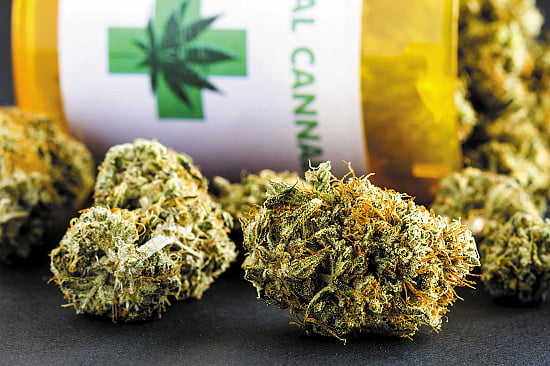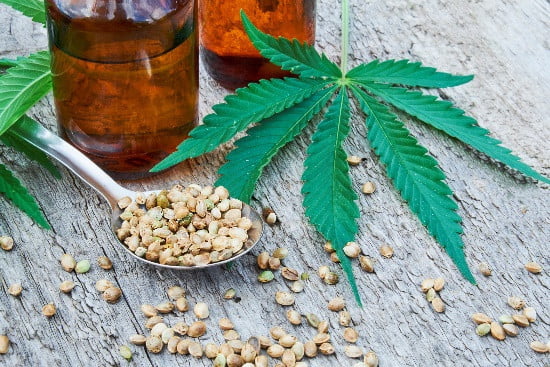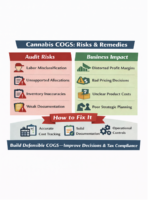As an Amazon Associate I earn from qualifying purchases.
Cannabidiol (CBD) Basics
What is CBD?
Cannabidiol, or CBD, is the second most prevalent active ingredient in cannabis. However, unlike its well-known cousin, Delta-9-tetrahydrocannabinol (THC), CBD does not have a psychoactive effect and does not cause the “high” typically associated with marijuana use. CBD is primarily extracted from the hemp plant, which is a variety of the cannabis plant species with low concentrations of THC.
How is CBD extracted?
There are several methods used to extract CBD from the hemp plant, but the most common is the CO2 extraction process. This method utilizes high-pressure carbon dioxide (CO2) to draw out the essential oils and cannabinoids from the plant material. The result is a concentrated CBD extract that is often further refined and purified to obtain pure CBD isolate or full-spectrum CBD products.
Difference between CBD and THC
The primary difference between CBD and THC lies in their chemical structures and the way they affect the human body. While both are cannabinoids, THC has strong psychoactive properties and is responsible for the “high” users experience when using marijuana. Conversely, CBD is not psychoactive and does not produce any mind-altering effects.
Moreover, CBD is considered to have a better safety profile than THC. Research suggests that CBD has no abuse or dependence potential and is more likely to offer therapeutic benefits without the risk of harmful side effects. It is important to note, however, that these findings are mostly based on limited studies conducted in specific contexts, and more research is needed to understand the full spectrum of CBD’s effects on the human body.
Endocannabinoid system and CBD interaction
Cannabinoids, including CBD, interact with the human body’s endocannabinoid system (ECS). The ECS is a complex cell-signaling system that plays a role in various physiological processes, including mood regulation, immune function, and pain perception. The system is composed of three main parts: endocannabinoids, receptors, and enzymes.
CBD is thought to interact with the ECS by primarily binding to CB1 and CB2 receptors, which are primarily found in the brain and central nervous system as well as the peripheral organs and tissues. Research suggests that by interacting with these receptors, CBD may have a beneficial effect on various health conditions, such as anxiety, insomnia, chronic pain, and addiction. However, more research is needed to understand the precise mechanisms of action and to determine effective doses for various medical conditions.
While the potential benefits of CBD hold promise, consumers should exercise caution and consult with a medical professional before using CBD products, particularly if they are also taking prescription medications. CBD may interact with other medications, and side effects, such as nausea, fatigue, and irritability, may occur. Furthermore, since CBD is primarily marketed and sold as an unregulated supplement, it’s essential to ensure the product’s quality and its purity and dosage consistency.

Benefits and Uses of CBD
In this section, we will discuss the various benefits and uses of cannabidiol (CBD) that have been suggested by research. While more studies are needed to confirm these findings, the current evidence suggests that CBD may help with several health conditions and improve overall well-being.
Treating childhood epilepsy syndromes
The strongest evidence for CBD’s health benefits is in treating childhood epilepsy syndromes, such as Dravet syndrome and Lennox-Gastaut syndrome. These conditions typically don’t respond well to traditional medications. However, CBD has been shown to significantly reduce seizure frequency in patients suffering from these syndromes.
Anxiety relief
Another promising area of research is the potential for CBD to help with anxiety disorders. Some studies have found that CBD may have anxiolytic (anti-anxiety) effects by acting on the brain’s serotonin receptors. This could make CBD a useful supplement for those experiencing anxiety, though more research is needed to confirm the precise mechanisms involved and to determine the optimal dosage.
Managing insomnia
Sleeplessness or insomnia is a common issue faced by many, and CBD is increasingly being investigated as a potential remedy. Early research suggests that CBD may help improve sleep quality and decrease nighttime awakenings, though the exact mechanisms are not yet fully understood. More in-depth studies are required to ascertain the effectiveness of CBD as a sleep aid.
Pain and inflammation reduction
CBD may have analgesic (pain-relieving) and anti-inflammatory effects, which could make it beneficial for those suffering from chronic pain conditions, such as arthritis or multiple sclerosis. Some studies have found that CBD effectively reduces pain and inflammation in animal models, and preliminary reports in humans have also shown promising results. However, further research is needed to confirm these findings and determine the best dosages for pain relief.
Addressing addiction issues
The potential of CBD for treating substance abuse disorders is another intriguing area of research. Some studies have found that CBD may help reduce cravings for drugs like opioids, alcohol, and tobacco. Additionally, CBD has been shown to be effective in treating addiction-related symptoms such as anxiety and impulsivity. It’s important to note that more research is required to fully understand how CBD may help with addiction issues and to determine appropriate doses.
Neuroprotective properties
Emerging evidence suggests that CBD may have neuroprotective properties, which means it could help protect the brain from damage caused by various factors, such as injury, inflammation, or neurodegenerative diseases like Alzheimer’s and Parkinson’s. While research in this area is still in its early stages, the initial results have been encouraging and indicate that CBD could potentially play a role in maintaining brain health and preventing cognitive decline.
In summary, current research suggests that CBD may have a wide range of health benefits, from treating childhood epilepsy to providing relief from anxiety, insomnia, chronic pain, and addiction. However, it’s essential to keep in mind that more studies are needed to confirm these findings and to develop specific guidelines for effective dosages. If you’re considering using CBD for any of these conditions, it’s crucial to consult with a healthcare professional to ensure it’s suitable for your specific needs and to get guidance on proper usage.

Legal Status of CBD
Variations across the U.S. and internationally
The legal status of cannabidiol (CBD) can be quite complicated, as it varies greatly depending on the country and even the state within the United States. In general, CBD is legal in many countries, but the specific laws and regulations regarding its production, distribution, possession, and consumption can vary significantly. In the U.S., the legal status of CBD is determined primarily by the source from which it is derived, which can be either the hemp plant or the cannabis plant. The 2018 Farm Bill federally legalized hemp and its derivates, which includes hemp-derived CBD; however, this does not necessarily render it legal at the state level, as each state is allowed to regulate CBD production, sale, and possession as it sees fit.
Internationally, the legal status of CBD varies from country to country. In Europe, for example, most countries allow the sale and use of CBD products, provided they contain less than 0.2% THC. However, some countries, such as France and Sweden, have more restrictive regulations, allowing only CBD isolates with no detectable THC levels. On the other hand, in some countries like China, CBD is strictly controlled and its production and sale are illegal.
Hemp-derived versus cannabis plant-derived CBD
As mentioned earlier, the legality of CBD in the U.S. is determined primarily by its source, being either hemp-derived or cannabis plant-derived. Hemp-derived CBD, classified as containing less than 0.3% THC, is considered legal at the federal level due to the 2018 Farm Bill. However, it is important to note that individual states can regulate and restrict the sale and use of hemp-derived CBD within their borders.
On the other hand, CBD derived from the cannabis plant (with over 0.3% THC) is classified as a Schedule I drug under the Controlled Substances Act, which means it is illegal federally in the United States. The possession, distribution, and use of such CBD are subject to state laws, which vary widely. Some states have legalized the use of cannabis for medical and/or recreational purposes, while others maintain strict regulations, allowing CBD use only in specific cases, such as for the treatment of epilepsy.
Legal implications of CBD usage and possession
In the U.S., the legal implications of CBD usage and possession depend on the state in which you reside or are present. Even if hemp-derived CBD is legal at the federal level, individuals may still face penalties if they are found in possession of CBD products that do not comply with state regulations. For instance, some states like Texas and Georgia only allow the use of CBD for certain medical conditions with a physician’s recommendation, while others like California and Colorado have legalized the sale and use of CBD products for both medical and recreational purposes.
Users should familiarize themselves with the CBD laws and regulations within their respective jurisdiction before purchasing and using CBD products. Travelling with CBD may also pose legal risks, especially when crossing international borders, as the legality of CBD may vary greatly depending on the country. It is highly recommended to consult with a legal professional to ensure compliance with local laws.
FDA stance on CBD products
Currently, the U.S. Food and Drug Administration (FDA) does not regulate CBD products as medications or dietary supplements. While the FDA has approved some medications that contain CBD as an active ingredient (such as Epidiolex for the treatment of epilepsy), it has issued numerous warning letters to companies marketing unapproved CBD products with unsubstantiated health claims.
Because the FDA does not regulate CBD products as dietary supplements, the quality, safety, and efficacy of these products cannot be guaranteed, leading to potential inconsistencies in purity and dosage. Consumers should exercise caution when purchasing CBD products and consult with a healthcare professional before using CBD to treat a specific condition or in conjunction with other medications.
Potential Side Effects and Safety Concerns
As with any supplement or medication, it’s essential to be aware of the potential side effects and safety concerns associated with CBD. While CBD has been shown to have various therapeutic benefits, it can also cause some unwanted side effects. In this section, we will explore common side effects, interactions with other medications, the risk of contamination or inconsistent dosage, special precautions for specific populations, and the implications of long-term use.
Common side effects
Although CBD is generally well-tolerated, some people may experience side effects when consuming it. Common side effects associated with CBD use include:
- Nausea
- Fatigue
- Irritability
It’s worth noting that most side effects are minor and may subside as your body gets accustomed to CBD. However, if you experience severe or persistent side effects, it’s important to consult with your healthcare provider.
Medication interactions
CBD can interact with certain medications, potentially altering their effects. It’s believed that CBD inhibits the enzyme CYP3A4, which is responsible for metabolizing many medications. As a result, the use of CBD in conjunction with other medications may lead to increased or decreased drug levels in the bloodstream, potentially causing unwanted side effects or diminished effectiveness.
Some examples of medications that may interact with CBD include:
- Blood thinners (e.g., warfarin)
- Certain antidepressants (e.g., SSRIs)
- Anti-seizure medications (e.g., clobazam)
- Some sedative medications
If you’re taking any prescription medications, it’s crucial to discuss your CBD use with your healthcare provider to ensure it won’t interfere with their effectiveness.
Risk of contamination or inconsistent dosage
Since CBD is primarily marketed and sold as an unregulated supplement, the risk of contamination or inconsistent dosage is a legitimate concern. Some products may contain contaminants such as pesticides, heavy metals, or residual solvents, posing potential health risks to consumers. Additionally, discrepancies between labeled and actual CBD content could lead to under- or over-dosing.
To minimize these risks, it’s critical to purchase CBD products from reputable manufacturers that provide third-party testing and certificates of analysis to verify their purity and potency.
Special precautions for pregnant or breastfeeding women
Due to the lack of research on the effects of CBD on pregnant or breastfeeding women, it’s recommended that they exercise caution when considering CBD use. While some studies have suggested CBD may have potential benefits for managing pregnancy-related symptoms such as nausea and pain, the overall safety and efficacy of CBD in this population are not well established.
If you’re pregnant or breastfeeding and considering using CBD, it’s crucial to consult with your healthcare provider to weigh the potential risks and benefits.
Long-term use implications
More research is needed to elucidate the long-term effects of CBD use fully. While most studies have focused on short-term use, the implications of sustained CBD consumption are not yet well defined. As CBD research progresses, we’ll be better equipped to understand the long-term safety profile and to determine whether any adverse effects may arise from extended use.
In conclusion, while CBD has shown potential therapeutic benefits for a variety of conditions, it’s crucial to be aware of the potential side effects and safety concerns. It’s important to have open communication with your healthcare provider about your CBD use, especially if you’re taking any medications or have specific health concerns. As with any supplement, always prioritize choosing high-quality products from reputable sources and stay informed about emerging research and developments in the CBD field.
Finding and Consuming CBD
As interest in cannabidiol (CBD) and its potential therapeutic benefits continues to grow, so too does the plethora of available CBD products on the market. Before diving into the world of CBD, it’s crucial to know how to find and consume these products safely and effectively. In this section, we will discuss selecting high-quality, reputable products, the various forms of consumption, determining a starting dosage, potential drug testing considerations, and the importance of consulting a healthcare professional before use.
Selecting high-quality, reputable products
With the increasing number of CBD products available, it can be overwhelming trying to identify reliable, trustworthy sources. As CBD is primarily marketed and sold as an unregulated supplement, potential purity and dosage inconsistencies can pose challenges. To select a high-quality product, consider the following:
- Look for products derived from hemp plants, as these are legal across the United States and contain less than 0.3% THC, the psychoactive component in cannabis.
- Research the company and read customer reviews to gather insight into their reputation and products’ efficacy.
- Seek out third-party lab test results that verify the product’s potency, purity, and the presence of any contaminants.
- Opt for full-spectrum or broad-spectrum CBD, which contain other beneficial cannabinoids and terpenes, rather than CBD isolates, which contain only CBD.
Various forms of consumption
CBD can be consumed in various ways, depending on personal preferences and desired effects. The main forms of CBD products include:
- Oils and extracts: These can be taken sublingually by placing a few drops under the tongue, allowing for rapid absorption and potentially quicker effects.
- Capsules: For a more convenient and discreet option, CBD capsules can be taken orally and offer consistent dosages.
- Patches: Transdermal patches can be applied to the skin for direct, long-lasting CBD absorption.
- Vapes: Inhaling CBD through vaporizers provides fast-acting effects, but may not be suitable for those with respiratory concerns.
- Topicals: Creams, lotions, and balms infused with CBD can be applied directly to the skin for localized relief.
As each method of consumption may have different onset times and levels of bioavailability, it is crucial to experiment and determine the most appropriate form for individual needs.
Determining a starting dosage
There is no one-size-fits-all dosage for CBD, as individual factors such as body weight, metabolism, and target symptoms can significantly impact the optimal dose. As a general guideline, it is best to start with a low dose and slowly titrate upwards as needed. Monitor your reactions and adjust the dosage accordingly until the desired effects are achieved. More research is needed to determine effective doses, so it may take time and experimentation to determine the most appropriate dosage for your specific needs.
Potential drug testing considerations
Although most CBD products from hemp plants contain less than 0.3% THC, there is still a remote possibility that trace amounts could be detected on a drug test. If you’re subject to regular drug testing or work in a field with zero-tolerance policies, it’s essential to weigh the risks and consider using broad-spectrum CBD, which contains no detectable levels of THC, or CBD isolate products.
Importance of consulting a healthcare professional before use
Before incorporating CBD into your wellness routine, it’s crucial to consult a healthcare professional, especially if you’re currently on other medications. CBD has been shown to interact with certain medications, potentially affecting how they are metabolized and leading to undesired side effects. Additionally, a healthcare professional can provide guidance on selecting products, dosages, and monitoring progress as needed.
While CBD shows promise in helping to alleviate various symptoms, understanding how to find and consume CBD safely is essential. By selecting high-quality products, experimenting with consumption methods and dosages, and consulting with a healthcare professional, you can maximize the potential benefits of this intriguing compound.
Ongoing Research and Future Developments
As the popularity of cannabidiol (CBD) continues to grow, so too does the need for additional research to help us understand its wide-ranging applications and potential benefits. We’re excited to explore some of the key areas where research is expanding, the current findings from clinical trials, and what the future may hold for this fascinating compound.
Areas of interest for CBD research
Scientific interest in CBD has exploded in recent years, with researchers investigating its potential therapeutic applications for various conditions. Some of these areas of interest include:
- Mental health: Studies suggest CBD may help with anxiety, depression, and post-traumatic stress disorder (PTSD).
- Sleep: Early research indicates CBD may help with insomnia and sleep disturbances.
- Pain: CBD has shown promise in managing chronic pain, including neuropathic pain and pain due to inflammation.
- Addiction: Preliminary research suggests CBD may have a role in treating drug addiction and substance abuse disorders.
- Neurological disorders: CBD has demonstrated effectiveness in treating epilepsy, and researchers are exploring its potential for other neurological conditions like Parkinson’s disease, multiple sclerosis, and Alzheimer’s disease.
Clinical trials and current findings
Several clinical trials investigating the possible benefits of CBD are currently underway. Some of the most recent findings include:
- A 2020 study found that a CBD-infused mouth spray significantly reduced chemotherapy-induced neuropathic pain in cancer patients.
- In a 2019 trial, CBD was shown to be an effective treatment for individuals with Lennox-Gastaut syndrome, a severe form of epilepsy.
- A 2018 study reported that CBD showed promise in reducing anxiety symptoms in individuals with social anxiety disorder, compared to placebo.
- Research published in 2015 demonstrated that treatment with CBD resulted in reduced cravings and decreased anxiety levels in people with heroin addiction.
These findings provide a glimpse into the potential benefits of CBD, but it’s essential to remember that more research is needed. As we learn more, we’ll gain a better understanding of this compound and how it may improve our health and well-being.
Future potential applications
As research continues to advance our understanding of CBD, new and innovative applications will likely emerge. Some potential areas of exploration include:
- Athletic recovery: CBD’s anti-inflammatory and analgesic properties could make it an attractive option for post-workout recovery and injury management in athletes.
- Skincare: CBD’s antioxidant and anti-inflammatory properties may make it a useful ingredient in skincare products, offering potential benefits for conditions like acne, eczema, and psoriasis.
- Gut health: Preliminary research suggests CBD may show promise in treating gastrointestinal disorders like irritable bowel syndrome and inflammatory bowel disease.
- Autoimmune diseases: Some studies indicate CBD may regulate the immune system and help relieve symptoms of autoimmune conditions like rheumatoid arthritis and lupus.
Regulation and standardization efforts
Given the unregulated nature of the CBD market in many regions, it’s crucial that we take steps to establish standardized guidelines for manufacturing, labeling, and marketing CBD products. These efforts will help ensure consumers have access to safe and consistent products with accurate dosage information.
Several organizations, including the U.S. Food and Drug Administration (FDA), the European Medicines Agency (EMA), and the World Health Organization (WHO), are working on creating guidelines and regulations to govern CBD production, distribution, and use.
As the scientific community continues to explore the potential benefits of CBD, we can expect ongoing research, advances in regulation, and more informed discussions about this fascinating compound. While it’s evident that more research is needed to fully understand CBD, the existing findings hold promise for future applications, enhancing our well-being and overall health.

Frequently Asked Questions
Is CBD legal in all 50 U.S. states?
The legal status of CBD in the United States can be quite confusing. Generally, CBD derived from hemp is legal in all 50 states, thanks to the 2018 Farm Bill. However, CBD derived from the cannabis plant is still considered a Schedule I drug and remains illegal at the federal level. Additionally, each state has its own regulations regarding CBD and cannabis products, so it’s essential to familiarize yourself with the specific laws in your jurisdiction before using CBD.
Does CBD show up on drug tests?
Standard drug tests typically screen for THC, the psychoactive compound in cannabis, and not CBD. However, it’s essential to know that some CBD products may contain trace amounts of THC, which could potentially lead to a positive result on a drug test. To avoid any issues, it’s best to use high-quality, third-party tested CBD products that ensure low to no THC content.
Can CBD get you high?
CBD does not produce a “high” effect like THC, found in marijuana. This is because CBD is not a psychoactive compound and does not interact with receptors in our brain responsible for the intoxicating effects of cannabis. Therefore, those seeking the potential therapeutic benefits of CBD without the “high” associated with THC can confidently use CBD products.
What are common dosage recommendations for CBD?
Determining the proper dosage for CBD can be challenging, as individual responses vary based on factors such as age, weight, metabolism, and the specific ailment being treated. It’s best to consult with a healthcare professional for personalized recommendations. However, a common approach is to start low and gradually increase the dosage until the desired effects are achieved.
Are there any risks associated with using CBD?
While CBD is generally considered safe, there are potential side effects, such as nausea, fatigue, and irritability. Additionally, CBD may interact with certain medications, including blood thinners. If you are considering using CBD, it’s essential to consult with your healthcare provider, especially if you have existing medical conditions or are taking other medications.
What are the main differences between CBD and THC?
CBD and THC are both active compounds found in cannabis plants but offer different effects to users. THC is a psychoactive compound responsible for the “high” associated with marijuana use, while CBD is non-psychoactive and does not cause a high.
The primary difference between CBD and THC lies in how they interact with the body’s endocannabinoid system, which regulates various biological processes. THC binds directly with receptors in the brain, causing the intoxicating effect. In contrast, CBD indirectly interacts with these receptors, modulating their function and providing potential therapeutic benefits without impairing cognitive function or creating a “high” feeling.
Amazon and the Amazon logo are trademarks of Amazon.com, Inc, or its affiliates.

